My Dad Was Gay — But Married To My Mom For 64 Years. As She Died, I Overheard Something I Can't Forget.
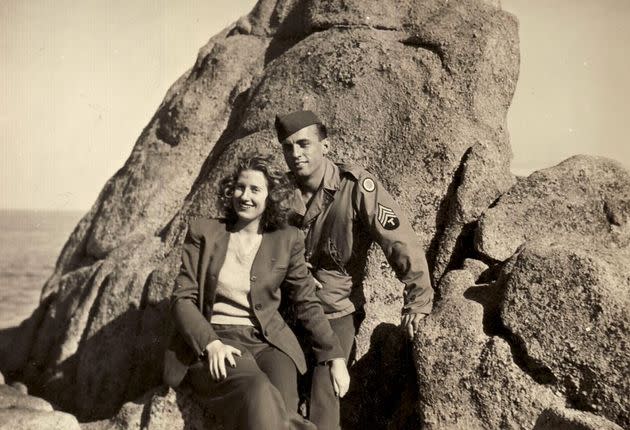
My father was gay. He was born in 1918. In my 20s, he started telling me stories about his early life. He was out in the 1930s at a time when it wasn’t common. He had dreams that most would not believe he dared to dream. The problem with my dad telling me all of this was that he was still married to my mother.
In 1939, at a party in the Hollywood Hills with gay filmmakers and musicians, he was arrested. Police officers handcuffed the men, herded them into a van, and took them to jail. The following morning, he appeared before a judge for sentencing. Because the arresting officer couldn’t swear that he saw him touching his dance partner, he was released.
Then he was caught up in an illegal sting operation in Pasadena that targeted gay men. They were extorted by the police for cash payments in return for conditional release. His dreams of being a schoolteacher and living with his boyfriend were destroyed.
As World War II loomed, he attempted to enlist in the U.S. Navy, but he was rejected when his record revealed that he was gay. The Army eventually accepted him, perhaps because war was imminent and able-bodied men, even gay ones, were needed.
Before my father shipped out for war, he attended a USO dance on the San Francisco Peninsula. When he and a fellow soldier arrived, his buddy yelled over the loud music, “Hey, Hall, let’s get outta here. There aren’t any girls to dance with.” My mother, still in high school, was dancing with the company cook at the time. She looked up and saw what she described as “a handsome soldier with big blue eyes and white teeth,” and said, “I’ll dance with you.” My parents would retell this origin story for the rest of their lives.
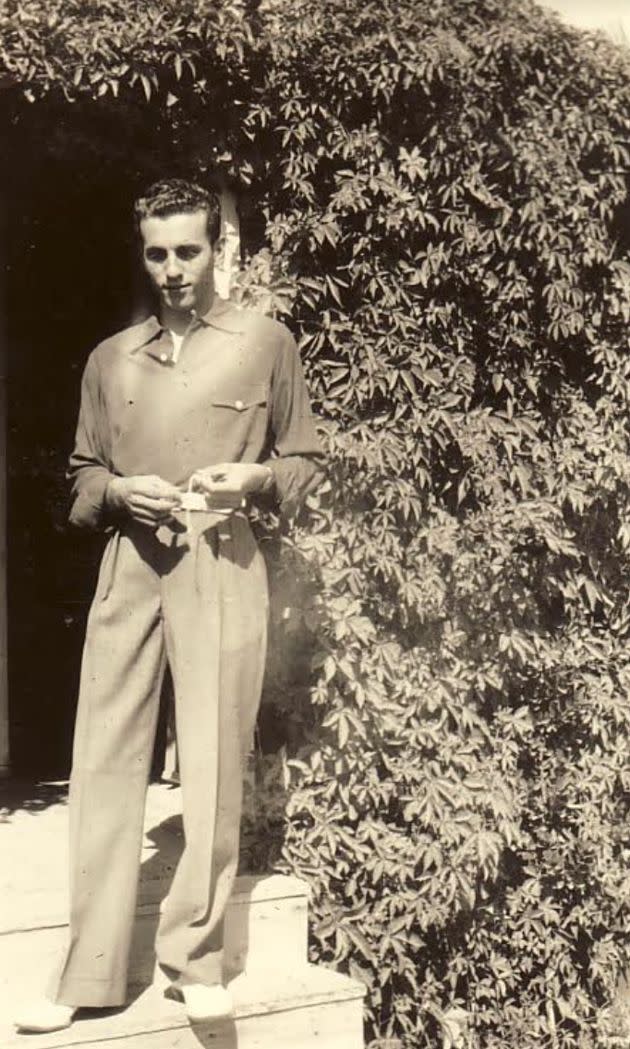
Granted a furlough in September of 1942, Dad sent a telegram to my mom that read, “Arrive in Frisco tomorrow. Marry me dearest.” To my grandmother’s horror, she accepted his proposal. She was only 18.
When the war ended, four babies followed. I was the second born. By the time I was 6, I was aware of how friendly my father was with my mother’s friends. The dinner parties they hosted in the 1950s and ’60s were glamorous affairs. Women vied to dance with my father, and told my mother that his smooth moves and good manners made him unlike the other men they knew. During some of those parties, I snuck down the hallway late at night and saw women that were not my mother sitting on my father’s lap. I was infuriated.
When I reached my early 20s, I found myself juggling partners. I was not proud of this. One day, on a hike in the hills above the family home, I confronted my father about what I assumed were his affairs. If he had dabbled with infidelity, maybe I wasn’t such a bad person after all. When we reached the top of the hill, I came right out and asked him if he had ever been unfaithful to Mom. His face flushed. After a pause, he told me the truth. It wasn’t what I expected.
“Honey, I’m gay,” he said, adding, “I’ve always been gay.”
I was shocked, though I knew he wasn’t a stereotypical dad in the neighborhood where I grew up. He selected my siblings’ and my clothes. He cut and styled our hair, one time giving me what he called a “Mia Farrow.” I didn’t even know who Mia was and I did not appreciate the fact that he had lopped off my ponytail. He did a better job styling my mother’s hair.
He taught me how to crochet, needlepoint, and make paper chains out of his cigarette packs. He created beautiful table centerpieces and whipped up fancy desserts for dinner parties. One of his fancy frozen desserts included sliced grapes that appeared to be floating in ice cream, which impressed us kids. He took us to operas, musicals, plays, and museums in San Francisco. He was a cool dad. There were no guns, roughhousing, hunting, or violent football games for our family.
His stories poured out of him once he came out to me. When I asked him if my mother knew, he said she discovered he was gay in the 1950s after finding revealing photos of him with other men. I was 6 at the time. She called him at work, hysterical. He sped home, thinking one of us kids had been hit by a car. When he found out what had happened, he offered to leave so she would never have to see him again. He promised to support her and us for the rest of his life. He packed up his things that night after my siblings and I were asleep. As he backed out of the driveway, Mom ran toward him, pleading with him to stay and telling him that she still loved him.
So, he stayed. He stayed forever.
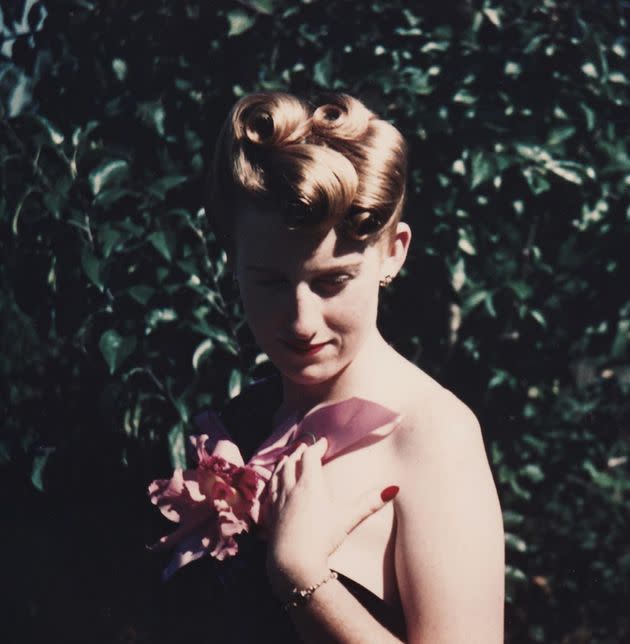
For years after he shared these stories with me, I felt sorry for my parents. I doubted they had the marriage they wanted, though neither of them ever let on to me that they were unhappy. Decades later, I asked my mother if she wished they had split up when she found out he was gay.
“Oh, nooo, Laurie,” she said, drawing out the word no. “I love your father.”
The years passed. As far as I could tell, they didn’t have an open marriage. But my mother supported my father when he created the first LGBT section in the local library and volunteered as an AIDS buddy for the Shanti Project in the 1990s.
On the night before my mother died in 2006, she lay unconscious in bed while my father hosted relatives in the kitchen. I sat at my mother’s bedside, wondering if he might let her final moments slip away without saying goodbye. I wondered if I had been wrong all along about their relationship being a loving one.
I wasn’t wrong.
At one point I left her room, and to my surprise, I watched as my father lumbered down the dark hallway toward her room. He was 88. I wondered if he had been waiting for me to leave. I stood at her bedroom door like an insecure child, hoping to hear that she had been happy with the life she had chosen.
“Rus-ty,” he said in a sing-song voice, calling her by the nickname she went by when they first met, “I’m so glad you said yes.”
Mom, who had been unconscious the prior 24 hours, responded, “I’d do it all over again.”
Dad looked stunned and asked her to repeat what she’d said. I guessed he was as surprised as I was. In the end, though, that was all I longed to hear. I left them alone to say their final goodbyes. My mother died the next morning, five months shy of their 65th anniversary.
My father lived for another two years. He often spoke of my mother, one time telling me he heard her calling his name from another room. He thought she’d be pleased with the way he decorated his new place. After all, she had always been his biggest fan. Theirs was an unconventional love — but love just the same — and one they chose under trying circumstances.
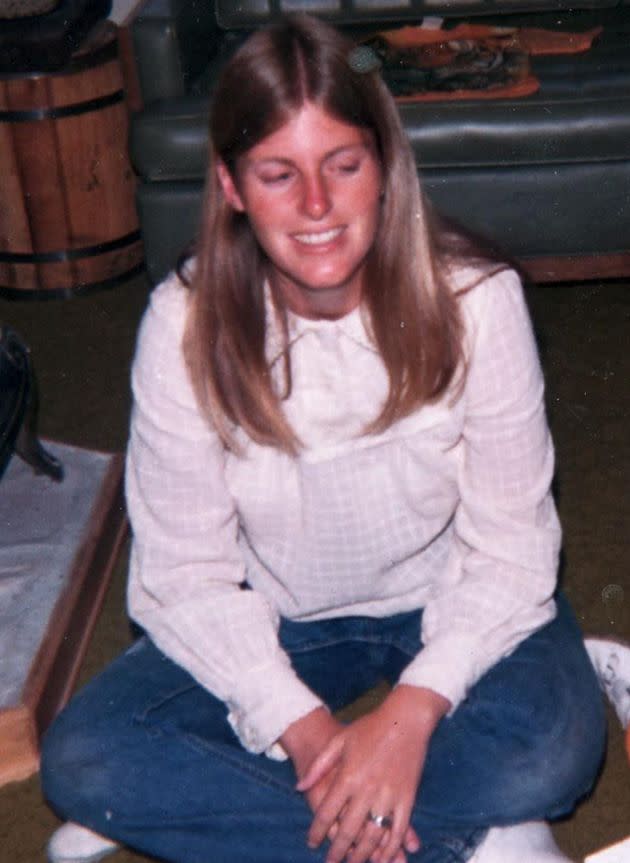
After my father’s death, I began to write about my family and speak publicly about us. I gave my first talk in San Francisco’s famed Castro District, one of the most historic gay neighborhoods in the U.S. I was surprised when I received pushback from two men in attendance. One declared my father was a traitor to the gay movement. Another accused him of being cruel to my mother for hiding his sexual orientation from her.
I was speechless and uneasy — ashamed might be a better word — and it hurt. I didn’t know how to respond, so I didn’t. Had I been wrong about my dad — this man I knew to be so wonderful and caring and loving, not only to my mom and my siblings and me, but seemingly to everyone he knew? I grappled with these thoughts and feelings for years.
Then, a few months ago, I watched “Maestro,” Bradley Cooper’s biopic of Leonard Bernstein, and something shifted in me. The film tells the story, in part, of the famous conductor’s marriage to Felicia Montealegre while he also pursued relationships with men. At one point, Bernstein tells Montealegre that he found it deplorable that the world wanted their marriage to be one thing, when it wasn’t just one thing.
Though Bernstein and Montealegre’s relationship was obviously much different from my parents’ relationship, I felt like I had been hit by a lightning bolt. I began to rethink and re-feel what I had been carrying inside of me since that day in the Castro. At the time, I didn’t speak up for my father as he had always done for me, which pains me. Watching “Maestro” allowed me to articulate what I had been feeling all these years: a deep regret that judgment from others led me to question my father’s integrity.
I am happy my parents found each other and I don’t doubt the love they had — or what I heard that night just before my mother died.
The environment in which my father was raised isn’t good for anyone. My father didn’t get to live the life he should have been able to live. But despite what he faced, what he lost, and what was taken away from him, he did what he could with what he had. He loved fiercely and his love allowed me to be who I am. I’m grateful for that, and still my heart breaks for him.
What happened wasn’t fair to my mother, either. I don’t pretend to know exactly what she felt, but I believe it must have been unthinkably difficult to be in her shoes. And yet, I also know she experienced great happiness and much of that was because of my father. I never once heard her criticize him in my presence.
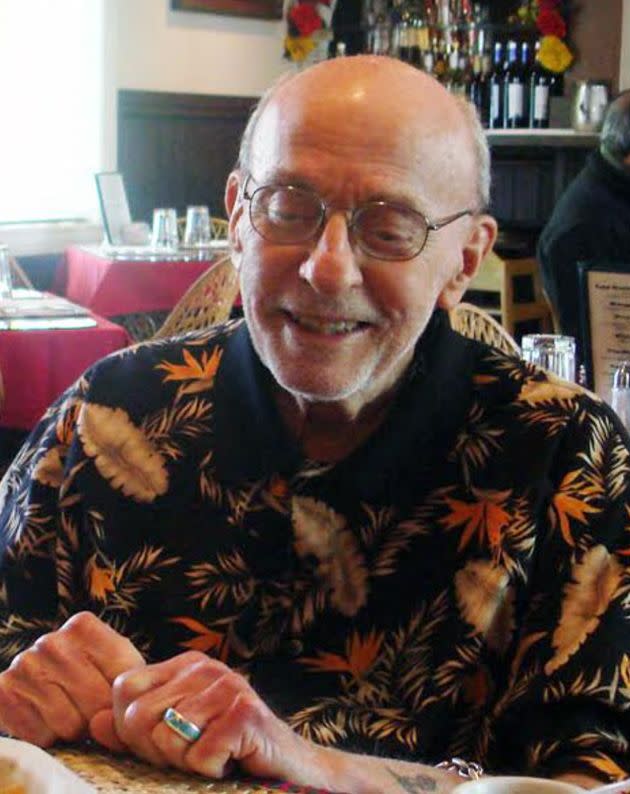
Ultimately, my parents’ story is complicated. To even begin to try to understand it requires context and nuance and a consideration of the time in which it happened. But I’m not sure that’s the point. For me, the point is that love comes in all different forms, and my parents’ lives, as imperfect and unfair as they may have been, were filled with love and, thanks to them, so was mine.
As my father lay dying in his hospital room in 2008 at the age of 90, he uncharacteristically barked out an order to me. He pointed to the large plastic clock on the wall.
“Turn the clock back, Laurie,” he said, adamantly. “Turn it back!”
Those were his final words to me. I was bewildered. But I told him I would, even though I had no idea what that meant. Maybe he wanted more time with my mom and his children. Maybe he wanted another chance to live his life as an openly gay man. Maybe he meant something else entirely.
I can’t turn back the clock — for him, for my mother, or for myself. But, going forward, I can promise that if I ever hear another negative word about my father, I will stand up for him without shame or regret. There are and were many men and women who faced situations like the one my parents faced. Their stories deserve to be told and heard. They may not fit neatly into a particular box, but what love story does?
Laura Hall was born on the San Francisco Peninsula to a closeted gay dad and a straight mom during the post-WWII baby boom. She came of age during the rebellious ’60s just as the Summer of Love kicked off in San Francisco. Her award-winning memoir, “Affliction: Growing Up With a Closeted Gay Dad,” was published in 2021.
Do you have a compelling personal story you’d like to see published on HuffPost? Find out what we’re looking for here and send us a pitch at pitch@huffpost.com.

